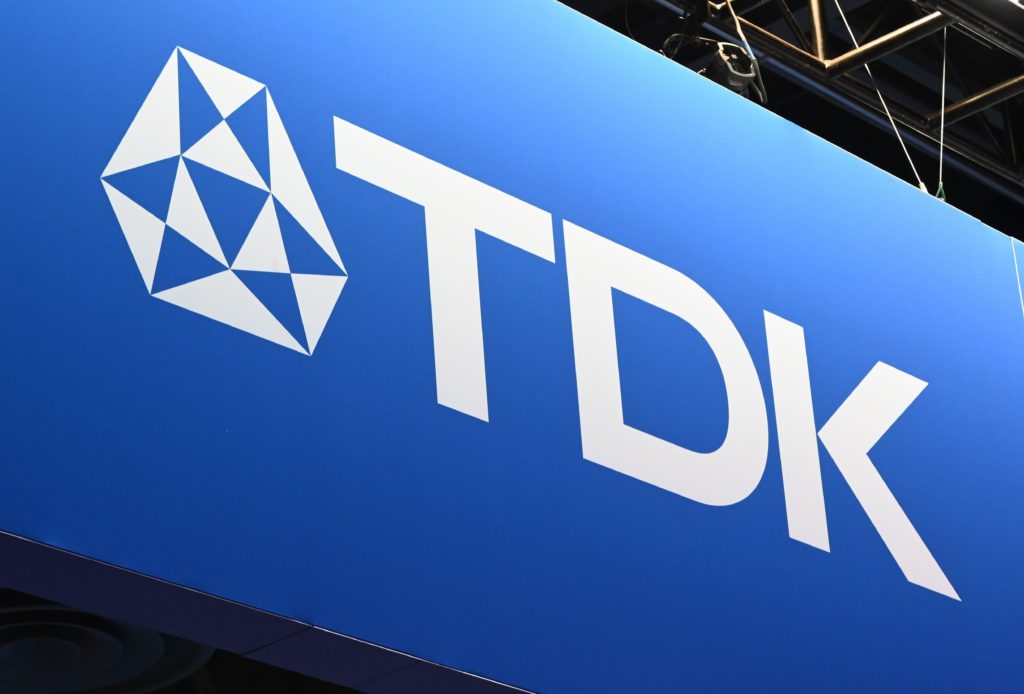(Bloomberg) — TDK Corp. aims to double revenue from its lithium-ion battery business in five years by expanding usage beyond smartphones and PCs, an ambitious goal revealed for the first time by its top executive.
The Tokyo-based component maker is a crucial supplier to many of the world’s top smartphone, tablet and console brands and enjoyed a boost from their sales surge triggered by the pandemic. As that demand begins to subside, the company is looking to sustain momentum by scaling up its product lineup to larger packs used in electric scooters, residential systems and cellular base stations, President Shigenao Ishiguro said in an interview.
Half of TDK’s revenue comes from its Amperex Technology Limited (ATL) battery business, accounting for 740 billion yen ($6.4 billion) in the last fiscal year. Hong Kong-based ATL in April initiated a joint venture with Chinese giant Contemporary Amperex Technology Co. (CATL) for the development of mid-sized battery packs aimed at e-scooters, industrial use and residential applications.
“We will be a challenger in the mid-sized battery market and I’m sure we can become a major player quickly in this segment,” 64-year-old Ishiguro said. “Revenue from these new use cases should become as large as what we earn from small gadgets today in five to six years.”
CATL, now the world’s biggest maker of electric-vehicle batteries and a Tesla Inc. supplier, began life as an ATL spinoff before TDK took over the latter company. Ishiguro, a 40-year veteran at TDK, isn’t contemplating automotive batteries due to the cost-intensive nature of the undertaking and because the company would be a late entrant into the sector, he said. The CATL joint venture, essential to TDK’s growth plan, is still going through regulatory reviews, the president said without elaborating on when he expects the collaboration to begin.
Expanding into new battery markets won’t come at the cost of TDK’s existing small-device focus, Ishiguro said. He sees the scale-up as essential to capturing the fastest growth in rechargeable battery adoption, which he identifies as the mid-size category and automotive use. It would be riskier for the company not to broaden its offerings even if it currently enjoys a strong position among suppliers for smaller devices, he added.
TDK has been disappointed by the boost to demand from broad consumer trends like increasing 5G wireless adoption, internet-of-things gadgets and augmented and virtual reality glasses. The potential of these applications remains high, as the technology will be essential at some point in the future, but relying on them for short-term growth is not a good option, Ishiguro said.
“We’ve been hearing how they’re on the brink of growing exponentially for the past five years now, but I don’t yet see any signs of that coming,” he said.
VR goggles remain a niche gadget because of their ungainly and bulky appearance and “most people don’t want to pick up such a thing,” let alone wear it. For the headsets to become mainstream, they must be smaller, at the very least. IoT gadgets, similarly, are unlikely to replace smartphones for consumers and would be best targeted at narrow-purpose industry applications, such as among factory workers, the president said.
TDK hasn’t dodged the global chip shortage and supply chain disruption that have hit a wide range of the manufacturing sector, and the company has been pushed into using pricier air cargo to deliver EV converters and chargers to customers. Judging from past experience and what he hears from industry peers, Ishiguro doesn’t expect the disruption initially triggered by the Covid-19 outbreak to ease in 2022.
“This is partly my wishful thinking, but I hope we find a way out next year,” he said.
More stories like this are available on bloomberg.com
©2022 Bloomberg L.P.











